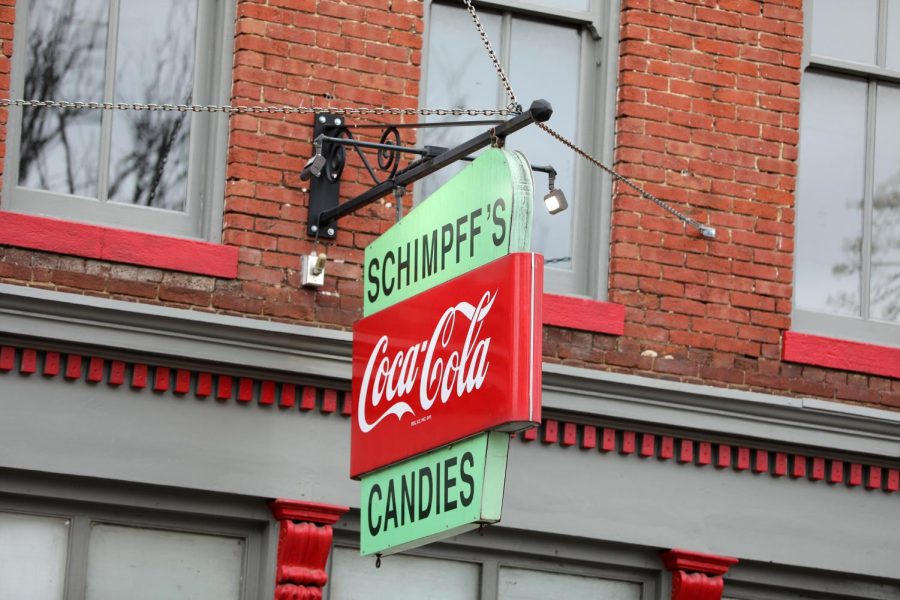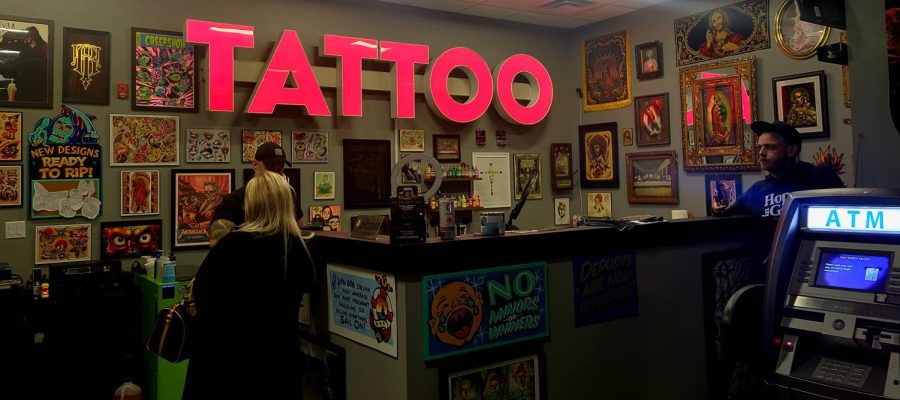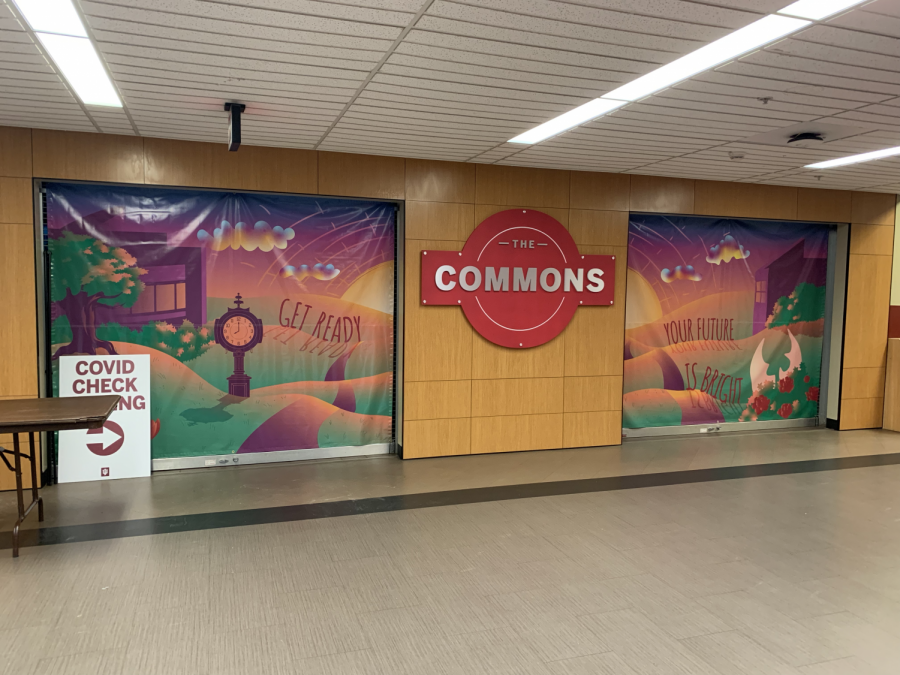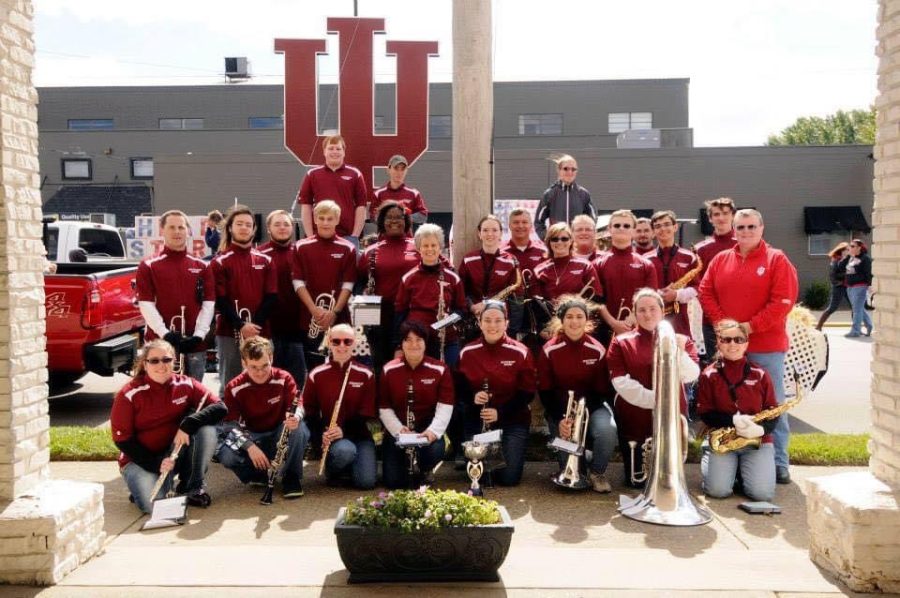
The lights were dim, the music was blaring and laughter filled the Robinson Theatre on Saturday, March 6, during the second annual Drag for Charity event at IU Southeast.
The Gay-Straight Alliance, along with the English Club, Student Veterans Organization and Residence Life, hosted the drag show.
About 50 people attended to see seven drag acts lip-sync and dance to music.
Half the proceeds went to the American Red Cross to help earthquake victims in Haiti and Chile.
The remaining half went toward funding for the GSA since they are a self-funded organization. Laquitta Maness, GSA secretary, said they didn’t have a set amount they wanted to raise.
“We just wanted to get people out here,” Maness said.
There were four judges. Three of them — Jen Crompton, assistant director of Residence Life, Greg Roberts, adviser, and Bill Sweigart, associate professor of English and academic adviser for the GSA — are all advisers for the GSA. Kim Pelle, coordinator of the Adult Student Center, was also a judge.
Each judge shared their comments after each performance, and the top three winners were chosen. The winner, Scuttle Butts, gave an encore performance.
Aaron Neely, psychology junior, is a part of the Scuttle Butts and said he had fun.
“I had a good time,” Neely said. “If I had to dress up like a lady to be a rock star, so be it.”
All joking aside, Neely said the GSA has been very supportive since he has been back from Iraq. He said it was hard transitioning back.
“It’s been really good to have people around that were really accepting,” Neely said.
John Cronin, political science senior, said he had a great first experience performing in the drag show.
“Performing was unlike any experience I have ever had,” Cronin said. “I got to experience the rush of it all for the first time.”
Cronin said raising money for the American Red Cross earthquake relief drove him to perform in the show. Sweigart said he was happy about how the show turned out.
“I thought it was very well done,” Sweigart said. “They worked very hard putting it together.”
During the show, many performers got the audience involved by either pulling them on stage or dancing with them in the crowd. Sweigart said the audience participation was great and felt like the audience really liked it.
Stephanie Schuman, secondary education sophomore, was in the audience and said the show was awesome and raising money for charity was a good thing.
“It’s pretty cool that they’re doing this to generate money for a good cause,” Schuman said. “I think they’re doing the right thing.”
Rosella Pearl, a student at the University of Louisville, was also in the audience and said she enjoyed the show.
“I thought the show was tantalizing,” Pearl said.
Maness said fliers were put up four months in advance to advertise for the show.
Performers had to attend informational meetings, but Maness said most of them were friends of the GSA.
They also advertised about the event in Louisville and around campus. Maness said the event only cost about $200.
Due to the mature nature of the show, the fliers stated no children should attend. Maness said there were no restrictions on what the performers could do, but school policy prohibited alcohol.
“Anything else was free game,” Maness said.
Sweigart said the GSA has been on campus for about 18 years and he has been the adviser for 16 years. He said, during the years, the GSA has gone by several names, such as Lambda, but the current name was decided upon in 2008.
According to the GSA’s Web site, the purpose of the group is to “provide a safe and tolerant place for gay, lesbian, bisexual, transgender, straight or questioning people to discuss issues that affect all people.”
Sweigart summed it up by just getting the education out there to people who need it and want it.
Sweigart said they do this by holding panel discussions on campus to help answer questions students may have. Representatives from the GSA will go to classes, upon requests from professors and may show presentations and answer questions.
Sweigart said there were three panels last fall and were successful because students feel more comfortable in a classroom setting.
Through education and time, Sweigart said, the prejudice among gays and lesbians will eventually go away.
“People need to be prepared and socialized and come to an understanding in order for those changes to happen,” Sweigart said.
By AMANDA FRENCH
Staff Writer
aafrench@imail.iu.edu






